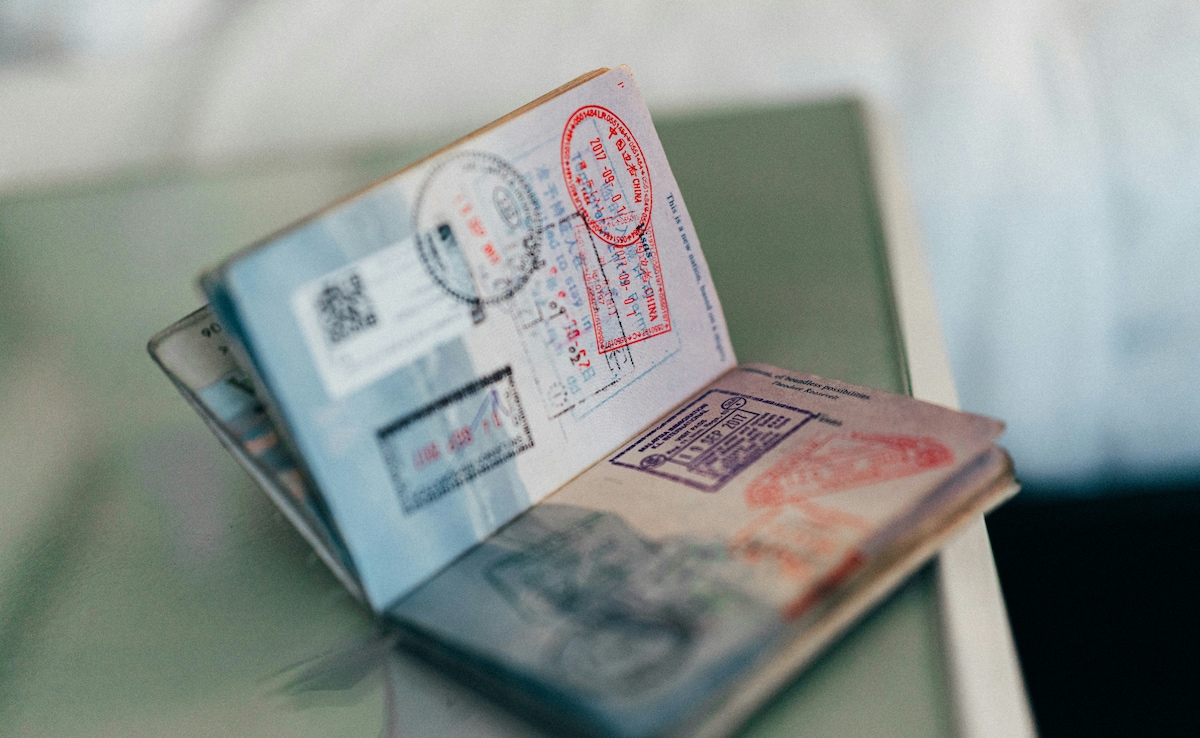
India has officially embarked on a major upgrade in travel documentation with the rollout of the new e-passport, a chip-embedded booklet designed to enhance security, speed and convenience for international travellers. Launched under the revamped Passport Seva Programme (PSP 2.0), the initiative brings India in line with global standards of biometric travel credentials. While the application process remains largely the same as for traditional passports, the embedded electronics and upgraded verification systems make the e-passport a modern tool for mobility in a connected world.
Eligible Indian citizens can now apply for this advanced format, and this change is expected to transform how thousands of travellers move abroad in the coming years.
Also Read: How To Apply For Passport In India: Steps, Documents And Everything Else To Know
What Is An E-Passport?

An e-passport appears much like a standard Indian passport, but includes a secure Radio-Frequency Identification (RFID) chip and antenna embedded in its scheme. This chip stores biometric data (such as fingerprints and facial recognition), along with personal particulars, and uses encryption to ensure the printed booklet and the digital record match. The cover is distinguished by a small gold-coloured insignia beneath the national emblem.
This modernised format helps make citizenship verification faster and tamper-resistant, particularly at e-gates and automated immigration lanes.
Who Can Apply For An E-Passport?
Any Indian citizen eligible for a regular passport may apply for an e-passport.
Initially, the facility is available only at selected Passport Seva Kendras (PSKs) and Post Office Passport Seva Kendras (POPSKs) in major cities. With time, the service will be made broadly available across India.
Steps To Apply For An E-Passport

1. Register or log in on the Passport Seva Portal
2. Select "Apply for Fresh Passport / Re-issue", and complete the online form.
3. Pay the fee online, then schedule an appointment at your local PSK or POPSK.
4. Visit the appointment centre with original documents. Biometric data (photo + fingerprints) will be captured.
5. Await processing and dispatch. Once approved, your e-passport will be delivered to the registered address.
Benefits Of An E-Passport

Here's how having an E-passport can help you:
1. Improved security: The chip and encryption guard against forgery and identity misuse.
2. Faster immigration: Handled at automated e-gates and checked quickly globally.
3. Standardised mobility: Aligns India's travel credentials with more than 120 countries using chip-enabled passports.
Also Read: Indian Passports Come In 4 Colours. Here Is What Each One Means
What Happens To Traditional Passports?
Existing passports remain fully valid until their stated expiry date. There is no mandatory requirement to switch to an e-passport immediately. Applicants may choose the upgraded format during renewal or fresh issue when eligible centres are available.
Track Latest News Live on NDTV.com and get news updates from India and around the world

